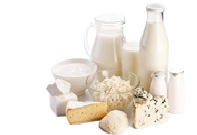Know your Foods
Nutrition comes from the food we eat. It is important to know about personal nutrition so you can make wiser decisions about what you eat. Adequate nutrition plays an important role in the maintenance of good health.
Grains Group
Grains are foods like cereal, bread, spaghetti, rice and crackers. Grains give you energy. Try to make half of your servings whole grains. You can tell if something is a whole grain because the name usually has the word “whole” in it. Scientifically these are called carbohydrates.
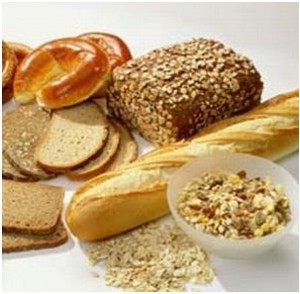
Vegetables Group
Vegetables are foods like broccoli, carrots, green beans, potatoes, spinach, and corn. Vegetables help keep you healthy and feeling good. You should try to eat at least one dark green vegetable or one orange vegetable each day. These are Fibers.
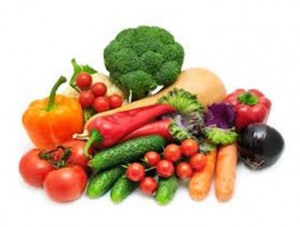
Milk Group
The milk group includes foods like milk, yogurt, cheese, ice cream and pudding. Foods from the milk group have calcium, which helps to grow strong bones and healthy teeth. This group belongs to lipids and protein.

Fruit groups
Some fruits are apples, pears, cantaloupe melon, watermelon, grapes, and blueberries. Fruits fight off infections and help you heal when you get hurt. Fruits are a tasty snack to eat every day. This group belongs to fiber.
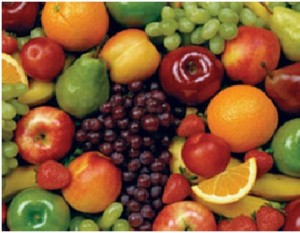
Meat & beans
The meats and beans group includes foods like hamburgers, chicken, fish, eggs, beans and nuts. Foods from the meat and beans group are full of protein to help you build strong muscles. Try to eat leaner, less fatty meats to keep your heart healthy. This group belongs to fat and protein.
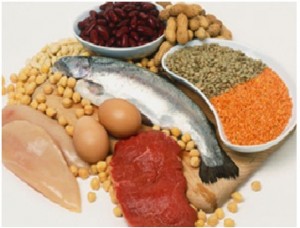
Carbohydrates, Proteins, Fats and Water :
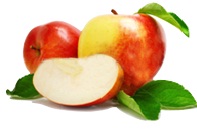
Carbohydrates are the chief source of energy for body functioning and muscle activity, necessary for metabolism. Dietary Fibres (indigestible Carbohydrates) help in functioning of the digestive system and easy elimination of food waste from the body. There are different types of carbohydrates, such as, Sugars,Staches and Dietary Fibre.
Sources :

SUGARS are easily digestible and found in Fruits, Milk, Honey, Table sugar, Jaggery and Candies
STARCHES require a longer time for digestion. Common sources for starch include Rice, Wheat, Millets, Flours, Rice Flakes, Rawa (Semolina), Bread, Breadfruit, Sweet Potato, etc
DIETARY FIBRE is plant material that is resistant to digestion in the body. Present in whole grain cereals such as parboiled rice (red rice), wheat, ragi, oats, and pulses such as grains, beans, fruits and vegetables. Avoid refined cereals, such as polished rice and products such as rice flour, maida, white bread as they lack Dietary Fibre.
Benefits
Consuming carbohydrates in adequate amounts benefits the body by:
- Preventing constipation and aiding in regular bowel movement
- Reducing risk of Cancer
- Preventing dental cavities as it promotes salivary flow and reduces stagnation of food in the mouth
- Helping lower blood cholesterol, reducing risk of heart disease
- Aiding in weight management for the obese
Proteins are considered the primary building material for blood, skin, hair, nails, organs and muscles. They are primarily body building foods. They are essential for growth, repair of worn out tissues, replacement of used-up blood and provide resistance against infections.

Sources
Food Sources of Proteins
Animal sources: Milk, curd, cheese, meat, egg and fish.
Vegetable sources: Pulses, Nuts, oilseeds and beans
The combination of two or more plant foods for example, khichidi etc. which is mixture of rice (cereal) and dal (pulse) results in improved protein quality. Other combinations of food that improve protein quality: Rice and fish, Rice and curd, Bread and omelette.
High protein diets are recommended during convalescence and in the treatment of malnutrition.
Inadequate
Effects of inadequate consumption of proteins:
Weight loss – malnutrition
Edema: Collection of fluid under the skin
Muscle wasting
Brittle hair and nails
Weakness and lethargy
Delayed wound healing.
Effects of excessive protein consumption:
The consumption of excessive protein is not recommended as it increases the load on the kidneys.
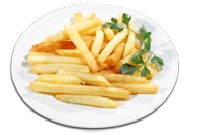
Fats are concentrated sources of energy and are essential nutrients needed by the body. Fats provide the building materials for some body parts such as brain, nerves and hormones and facilitate absorption, transport and storage of fat-soluble vitamins A, D, E and K. Fats also provide the essential fatty acids that are required to maintain the integrity of the skin and for growth.

Classification of Fats
- Saturated Fats are bad for the heart if consumed in excess, such as Butter, ghee, lard, (hydrogenated fats) – Used in Bakery products.
- Unsaturated Fats are heart friendly fats, such as olive oil, rice bran oil, groundnut oil, mustard oil, sunflower oil, soybean oil and safflower oil.

Cholesterol
- Cholesterol is a fat-related compound present in foods of animal origin such as: ghee, butter, egg yolk, meat, organ meats such as liver, brain.
- It is not present in fats of plant origin but increased consumption of fats of plant origin can lead to synthesis of cholesterol in the body.

Inadequate
- Effects of inadequate consumption of fat
- Deficiency in humans is rare
- Deficiency of essential fatty acids leads to dryness of the skin

Water, About 60 – 70% of your body and over 80% of your brain is water. A drop of 2% water supply in our body can lead to signs of dehydration – dry mouth and tongue, headaches, hazy memory, fatigue.
Let’s have a look at some of the benefits of drinking adequate water.
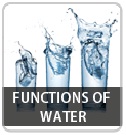
Functions of Water
- It keeps you skin free of pimples and acne
- It dissolves toxins in the body
- It gives form to your body and maintains body temperature
- Helps in proper functioning of your kidneys
- Alleviates constipation
- Regulates metabolism and acts as lubricant for our body’s joint, tissues and organs
- Distributes water soluble vitamins in your body
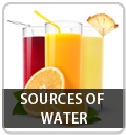
Sources of Water
- Drinking water
- Beverages
- Water contained in food
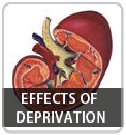
Inadequate Consumption
- Dehydration – dry mouth and tongue, non – responsive skin
- Constipation
- Kidney and urinary bladder stones
- Urinary infections
Use Safe Water
Untreated water from rivers and canals contains parasites and pathogens, which cause diarrhea, typhoid or dysentery and is not safe for consumption.
There are various types of foods, each providing various nutrients. They are classified as follows:
Energy Giving Foods :

Provide energy to do work
Body Building Foods :
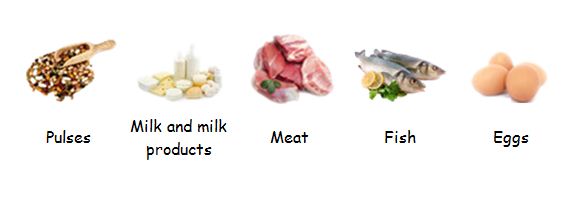
Provide for growth, maintenance and repair of tissues
Rich in protein
Protective Foods :

Regulate body functions and offer protection against diseases
Rich in minerals and vitamins.
Courtesy: Nestle, India


